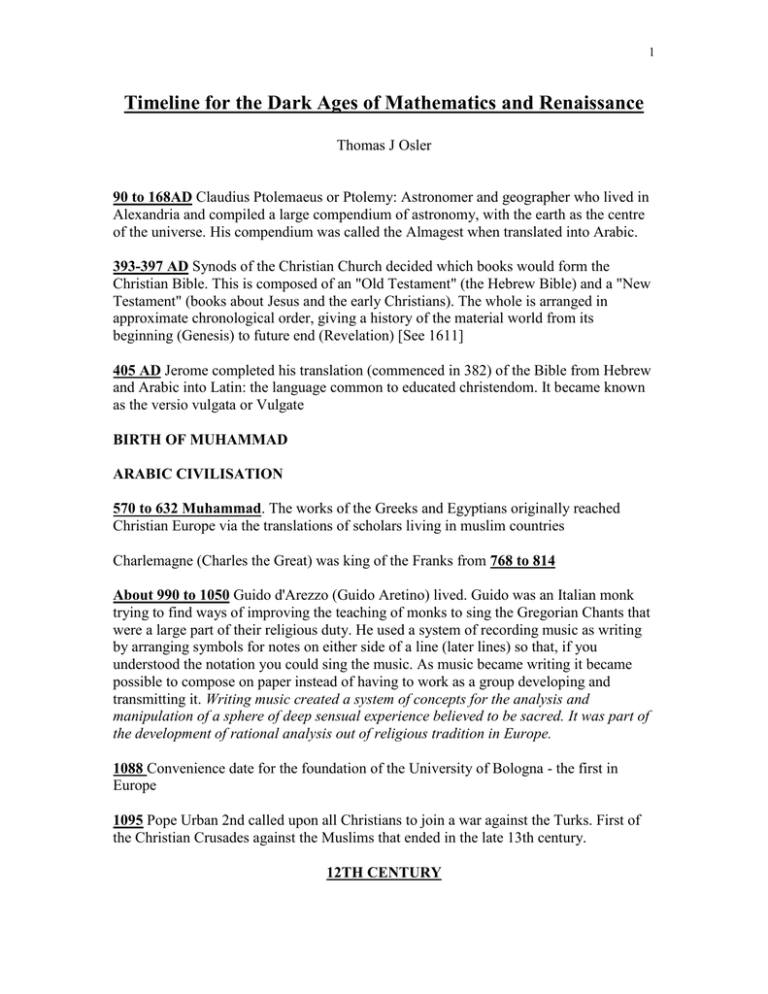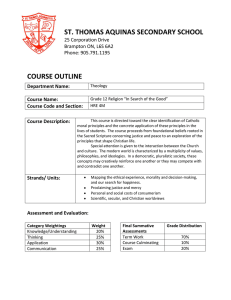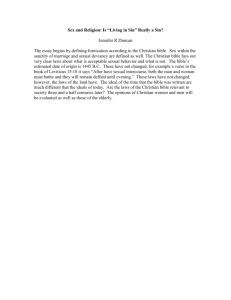Timeline for the Dark Ages of Mathematics and Renaissance
advertisement

1 Timeline for the Dark Ages of Mathematics and Renaissance Thomas J Osler 90 to 168AD Claudius Ptolemaeus or Ptolemy: Astronomer and geographer who lived in Alexandria and compiled a large compendium of astronomy, with the earth as the centre of the universe. His compendium was called the Almagest when translated into Arabic. 393-397 AD Synods of the Christian Church decided which books would form the Christian Bible. This is composed of an "Old Testament" (the Hebrew Bible) and a "New Testament" (books about Jesus and the early Christians). The whole is arranged in approximate chronological order, giving a history of the material world from its beginning (Genesis) to future end (Revelation) [See 1611] 405 AD Jerome completed his translation (commenced in 382) of the Bible from Hebrew and Arabic into Latin: the language common to educated christendom. It became known as the versio vulgata or Vulgate BIRTH OF MUHAMMAD ARABIC CIVILISATION 570 to 632 Muhammad. The works of the Greeks and Egyptians originally reached Christian Europe via the translations of scholars living in muslim countries Charlemagne (Charles the Great) was king of the Franks from 768 to 814 About 990 to 1050 Guido d'Arezzo (Guido Aretino) lived. Guido was an Italian monk trying to find ways of improving the teaching of monks to sing the Gregorian Chants that were a large part of their religious duty. He used a system of recording music as writing by arranging symbols for notes on either side of a line (later lines) so that, if you understood the notation you could sing the music. As music became writing it became possible to compose on paper instead of having to work as a group developing and transmitting it. Writing music created a system of concepts for the analysis and manipulation of a sphere of deep sensual experience believed to be sacred. It was part of the development of rational analysis out of religious tradition in Europe. 1088 Convenience date for the foundation of the University of Bologna - the first in Europe 1095 Pope Urban 2nd called upon all Christians to join a war against the Turks. First of the Christian Crusades against the Muslims that ended in the late 13th century. 12TH CENTURY 2 About 1120 Euclid rediscovered Before 1170? The University of Paris developed out of the Cathedral schools of Notre Dame. The short history of Oxford University says it (Oxford) developed rapidly after 1167, when Henry 2nd "banned English students from attending the University of Paris". The University of Paris was formally established in 1215. Oxford has a formal consitution modelled on it. 1175 Ptolemy rediscovered 13TH CENTURY Universities founded at Cambridge (1209) - Salamanca (1218) - Padua (1222) - Naples (1224) - Toulouse (1229) - Siena (1240) - Montpellier (1289) - Lisbon (1290) 1225 to 1274 Thomas Aquinas. Aquinas created a synthesis between Christian theology and Aristotelianism. He asserted that political power is natural, as hierarchic relations already exist among the angels in heaven. Wrote Summa Theologica, a rational approach to Christian theology. 1271 Last of the Christian Crusades against the Muslims. By 1291 muslims had recaptured all the territory in Syria held by the Crusaders 14TH CENTURY The Renaissance (cultural rebirth) is generally regarded as beginning in Florence, Italy, in the early 14th century. The greatest Italian poet and one of the most important writers of European literature. Dante is best known for the epic poem COMMEDIA, c. 1310-14, later named LA DIVINA COMMEDIA. It has profoundly affected not only the religious imagination but all subsequent allegorical creation of imaginary worlds in literature. Dante spent much of his life traveling from one city to another. 1347-1350 Black Death (Bubonic Plague) in Europe. Further outbreaks (England) in 1361-1362, 1369, 1379-1383, 1389-1393, and during first half of the 15th century. 1387 Geoffrey Chaucer (1328-1400) started writing The Canterbury Tales. The East Midland dialect he wrote in became the basis from which standard English evolved. Before the age of printing Rhymers like Geoffrey Chaucer Were needed to preserve in public verse The life of the people. 3 Whilst in the monasteries Chorister's memory preserved Plain song, whose metrical rhythm Underpinned the mathematics still to come. And in ways like this, modern science Was made possible by medieval poetry. 1447 Pope Nicholas 5th authorised the Portuguese to make war on muslims and pagans, and to make them slaves. He applauded the trade in negroes, and hoped that it would end in their conversion. About 1450 Johannes Gutenberg invented the printing press - Which is probably why the middle of the 15th century is the most popular date for starting "modern history" The first printed edition of Euclid was a translation from arabic into latin in 1482 1492 Columbus's first voyage to America. Visited Haiti. 16TH CENTURY 1517 The publication of Luther's ninety-five theses became the official launch of protestant christianity. The Bible was given priority over the church as the source of authority. The scope for religious disagreements multiplied as more and more people were able to read it for themselves. The movement for the reform of the Catholic (universal) church and the breakaway of protestant and reformed churches is called The Reformation. 1528 Copernicus finished De Revolutionibus, arguing that the earth goes round the sun, not the sun round the earth. The first printed copy was in 1543

